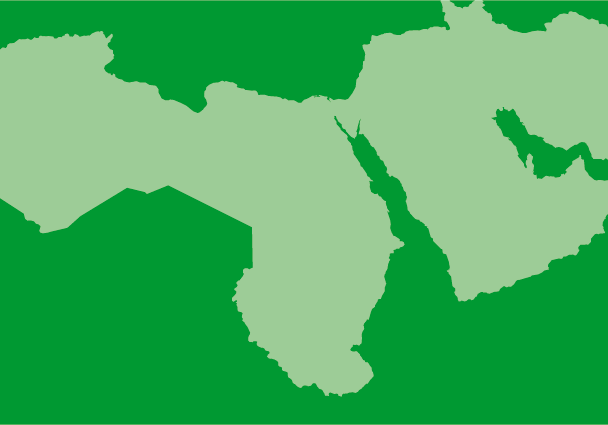In an intervention addressed to H.E. President Sayed Mohammad Khatami, President of the Islamic Republic of Iran, the ICJ’s Centre for the Independence of Judges and Lawyers condemns the recent imprisonment of Iranian lawyers Mohammad-Ali Dadkhah and Soltani.
These arrests were based on manifestly unfair trial proceedings.
Both lawyers are imprisoned for defending persons with divergent views.
In addition, a lawyer who represented Mr. Soltani, Mr. Seyfzadeh, has been sentenced to 4 months imprisonment. All three lawyers have been barred from practicing law from 3 to 10 years.
24 January 2003
H.E. President Sayed Mohammad Khatami
President of the Islamic Republic of Iran
Palestine Avenue
Tehran, Islamic Republic of Iran
Your Excellency,
The International Commission of Jurists (ICJ) consists of jurists who represent all the regions and legal systems in the world working to uphold the rule of law and the legal protection of human rights. The ICJ’s Centre for the Independence of Judges and Lawyers is dedicated to promoting the independence of judges and lawyers throughout the world.
We are writing to you to express our alarm that Mr. Mohammad-Ali Dadkhah and Mr. Soltani, both lawyers, were arrested at their homes and imprisoned on 20 January 2003 at Evin prison.
The ICJ had previously addressed a letter to you on 29 February 2002 regarding the closed trial of Mr. Dadkhah before the General Court in Tehran on 28 January. Mr. Dadkhah was prosecuted for a statement he made as the defense lawyer of several journalists and intellectuals who were being tried by the secret Revolution Court. During the trial of the intellectuals, the President of the Revolution Court expelled Mr. Dadkhah and did not allow him to finish his defense statement thereby leaving his clients with no legal representation.
Furthermore, in retribution for his representation of these clients, on 20 May 2002, the General Court sentenced Mr. Dadkhah to five months’ imprisonment and banned him from practising law for ten years, an unwarranted and severe punishment by any standards.
The ICJ is deeply concerned to receive information that Mr. Dadkhah has now been imprisoned.
We have, furthermore, received information that Mr. Soltani, a lawyer who represented political prisoners in March 2002, was also arrested and imprisoned on 20 January 2003. The General Court of Tehran had sentenced Mr. Soltani to four months imprisonment and disbarrment for five years for having represented political prisoners. In addition, Mr. Soltani’s lawyer, Mr. Seyfzadeh was sentenced to four months in jail and will be unable to practise law for three years.
We are concerned that that Mr. Dadkhah and Mr. Soltani’s imprisonment were based on trials which flagrantly violated international human rights treaties to which Iran is a party. Article 14 (1) of the International Covenant on Civil and Political Rights which Iran ratified in June 1975 states that,
All persons shall be equal before the courts and tribunals. In the determination of any criminal charge against him, or of his rights and obligations in a suit at law, everyone shall be entitled to a fair and public hearing by a competent, independent and impartial tribunal established by law…
We would also like to draw your attention to the United Nations Basic Principles on the Role of Lawyers which were adopted by the U.N. General Assembly in 1990. They state, in relevant part:
Principle 16: Governments shall ensure that lawyers are able to perform all of their professional functions without intimidation, hindrance, harassment or improper interference.
Principle 18: Lawyers shall not be identified with their clients or their clients causes as a result of discharging their functions.
Principle 20: Lawyers shall enjoy civil and penal immunity for relevant statements made in their professional appearances before a court.
Furthermore, the UN Basic Principles require that if a lawyer is to be disciplined, he or she shall have the right to a fair hearing and the disciplinary proceedings must be before an impartial disciplinary committee (Principles 27 and 28).
As the trials of Mr. Dadkhah and Mr. Soltani which led to their imprisonment fell far short of basic universal human rights standards, we ask that both these lawyers be immediately released from prison. We also urge you to guarantee that their physical integrity is protected. Furthermore, we ask that the charges against Mr. Seyfzadeh be dropped and that any disciplinary proceedings that may be brought against him be before an impartial disciplinary committee.
Yours sincerely,
Louise Doswald-Beck Secretary-General
cc: Mr. Mohmoud Hashemi Shahrudi
Minister of Justice
Park-e-Shahr
Tehran, Islamic Republic of Iran
fax: 98 21 879 6671
cc: Mr. M. Kamal Kharrazi
Minister of Foreign Affairs
Sheikh Abdolmajid Keshk-e-Mesri Ave.
Tehran, Islamic Republic of Iran
fax: 98 21 390 1999

